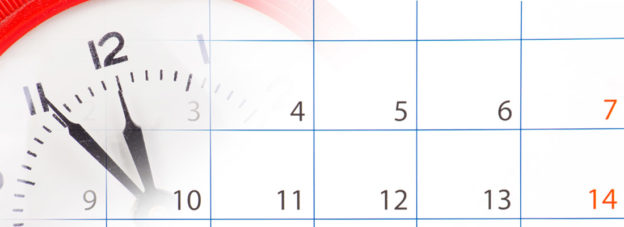Gus Sara, Partner, and Mike Abed, Associate, focus on their experience with proving a product design defect case under Pennsylvania-state tort law and sharing their experiences related to failsafe product components.
Author Archives: Gus Sara

Too Costly to Be Fair: Texas Appellate Court Finds the Arbitration Clause in a Residential Construction Contract Unenforceable
In Cont’l Homes of Tex., L.P. v. Perez, No. 04-21-00396-CV, 2022 Tex. App. LEXIS 7691, the Court of Appeals of Texas (Appellate Court) considered whether the lower court erred in refusing to enforce an arbitration clause in a construction contract between the parties. The Appellate Court considered the costs of the arbitration forum required by the contract in the context of the plaintiffs’ monthly household income. The court also compared the arbitration cost to the estimated cost of litigating the dispute. The court held that the arbitration clause was substantively unconscionable on the grounds that the arbitration costs were not affordable for the plaintiffs and not an “adequate and accessible substitute to litigation.” The Appellate Court affirmed the lower court’s decision denying the defendant’s motion to compel arbitration. Continue reading

Part of the Whole: Idaho District Court Holds Economic Loss Rule Bars Tort Claims Related to Water Supply Line that was Part of Home Purchase
In Safeco Ins. Co. of Ill. v. LSP Prods. Grp., 2022 U.S. Dist. LEXIS 139566, the United States District Court for the District of Idaho (District Court) considered whether the plaintiff’s tort claims against the manufacturer of an allegedly defective toilet water supply line were barred by the economic loss rule. The defendant filed a motion for summary judgment arguing that, since the supply line was a part of the home when the plaintiff’s insureds purchased it, the plaintiff was barred by the economic loss rule from bringing tort claims against the manufacturer. The District Court granted the defendant’s summary judgment motion, ruling that the supply line was a part of the home, which was the subject of the transaction, at the time it was purchased. Thus, the District Court held that the economic loss rule barred the plaintiff’s tort claims. Continue reading

Who’s on First: How First Party Claims Adjusters Add Value to Subrogation Recovery Efforts, Part 2
In the most recent episode of the Subro Sessions Podcast, Matt Ferrie, Gus Sara and Lian Skaf of the Subrogation Department are joined by Ihor Redkva, Field Property Claims Leader at Allstate, in part two of a discussion about the value first-party claims adjusters bring to subrogation efforts.
Did you miss Part 1 of this discussion? Click here to listen now.

Mind Over Matter: Court Finds Expert Opinion Based on NFPA 921 Reliable Despite Absence of Physical Testing
In Smith v. Spectrum Brands, Inc., 2022 U.S. Dist. LEXIS 142262, the United States District Court for the Eastern District of Pennsylvania (District Court) considered whether the plaintiffs’ liability expert met the requirements of Rule 702 of the Federal Rules of Evidence and could testify that a filter pump for an aquarium tank was defectively designed and caused a fire at the plaintiffs’ home. The defendant filed a motion to exclude the plaintiffs’ liability expert on grounds that the expert’s opinion did not satisfy the reliability element of Rule 702 because the expert never conducted physical testing on the filter pump. The court found that the cognitive testing employed by the expert through various methods, including visual inspections of the evidence, a review of photographs of the scene and literature from the manufacturer, and research on similar products, was sufficiently reliable to admit his opinion. Continue reading

In All Fairness: Illinois Appellate Court Finds That Arbitration Clause in a Residential Construction Contract Was Unconscionable and Unenforceable
In Bain v. Airoom, LLC, No. 1-21-001, 2022 Ill. App. LEXIS 241, the Appellate Court of Illinois (Appellate Court) considered whether the lower court erred in enforcing an arbitration clause in a construction contract between the parties and, as a result, dismissing the plaintiff’s lawsuit. The Appellate Court found that even if the arbitration clause was enforceable, the appropriate action would have been for the court to stay the lawsuit, as opposed to dismissing the case entirely. The Appellate Court then considered the language of the arbitration clause and found that several provisions were substantively unconscionable, which rendered the entire arbitration clause unenforceable. The Appellate Court reversed the lower court’s decision compelling arbitration and reinstated the plaintiff’s complaint. Continue reading

Waive Your Claim Goodbye: Louisiana Court Holds That AIA Subrogation Waiver Did Not Violate Anti-Indemnification Statute and Applied to Subcontractors
In 2700 Bohn Motor, LLC v. F.H. Myers Constr. Corp., No. 2021-CA-0671, 2022 La. App. LEXIS 651 (Bohn Motor), the Court of Appeals of Louisiana for the Fourth Circuit (Court of Appeals) considered whether a subrogation waiver in an AIA construction contract was enforceable and, if so, whether the waiver also protected subcontractors that were not signatories to the contract. The lower court granted the defendants’ motion for summary judgment based on the subrogation waiver in the construction contract. The plaintiffs appealed the decision, arguing that the subrogation waiver violated Louisiana’s anti-indemnification statute. The plaintiffs also argued that even if enforceable, the subrogation waiver did not apply to the defendant subcontractors since they were not parties to the contract. The Court of Appeals ultimately held that the subrogation waiver did not violate the anti-indemnification statute because the waiver did not shift liability, which the statute was intended to prevent. In addition, the Court of Appeals found that the contract sufficiently satisfied the required elements for the defendant subcontractors to qualify as third-party beneficiaries of the contract.

Too Late for The Blame Game: Massachusetts Court Holds That the Statute of Repose Barred a Product Manufacturer from Seeking Contribution from a Product Installer
In State Farm Fire & Cas. Co. v. Wangs Alliance Corp., No. 21-cv-10389-AK, 2022 U.S. Dist. LEXIS 26712, the United States District Court for the District of Massachusetts (District Court) considered whether a product manufacturer was barred by the Commonwealth’s six-year statute of repose for improvements to real property from joining the installer of the product as a third-party defendant. The court denied the defendant’s motion for leave to file a third-party complaint to join the installer, finding that the installer completed its work more than six years prior to the motion being filed. This case reminds us that Massachusetts’ six-year statute of repose for improvement to real property also bars a defendant’s contribution claims against third parties. Continue reading

Tick Tock: Don’t Let the Statute of Repose or Limitations Time Periods Run on Your Construction Claims
In Wascher v. ABC Ins. Co., No. 2020AP1961, 2022 Wisc. App. LEXIS 110 (Feb. 9, 2022), the Court of Appeals of Wisconsin considered whether the plaintiffs were barred — by Wisconsin’s 10-year statute of repose for improvements to real property claims and the six-year statute of limitations for breach of contract claims — from bringing a lawsuit against the original builders of their home. The plaintiffs alleged negligence and breach of contract against the masonry subcontractors, asserting that they improperly installed the exterior stone cladding. The court found that the plaintiffs’ claims against the original builders were time-barred. Continue reading

Can You Prove It? New Jersey Court Holds That Plaintiff Alleging Negligent Destruction of Evidence Failed to Sufficiently Prove Proximate Cause in Underlying Claim
In 27-35 Jackson Ave., LLC v. Samsung Fire & Marine Inc. Co., No. A-2925-19, 2021 N.J. Super LEXIS 120, the Superior Court of New Jersey, Appellate Division (Appellate Division) considered whether the lower court properly granted the defendant’s summary judgment motion. In its motion, the defendant argued that the plaintiff could not establish proximate cause between the defendant’s alleged conduct of destroying or losing evidence and the plaintiff’s inability to prove liability against other responsible third parties. The Appellate Division affirmed the lower court’s ruling, finding that the plaintiff failed to provide sufficient evidence of a viable liability claim against potentially responsible third parties in the underlying claim. Continue reading
